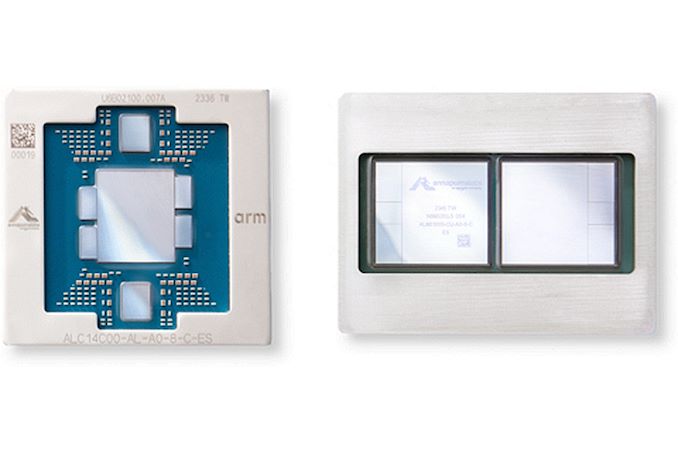
Nowadays many cloud service providers design their own silicon, but Amazon Web Services (AWS) started to do this ahead of its rivals and by now its Annapurna Labs develops processors that can well compete with those from AMD and Intel. This week AWS introduced its Graviton4, a 96-core ARM-based system-on-chip (SoC) that promises to challenge renowned CPU designers and offer unprecedented performance to AWS clients.
“By focusing our chip designs on real workloads that matter to customers, we are able to deliver the most advanced cloud infrastructure to them,” said David Brown, vice president of Compute and Networking at AWS. “Graviton4 marks the fourth generation we have delivered in just five years, and is the most powerful and energy efficient chip we have ever built for a broad range of workloads.”
The AWS Graviton4 processor packs 96 cores that offer on average 30% higher compute performance compared to Graviton3 and is 40% faster in database applications as well as 45% faster in Java applications, according to Amazon. Given that Amazon did not reveal many details about its Graviton4, it is hard to attribute performance increases to any particular characteristics of the CPU.
Yet, NextPlatform believes that the processor uses Arm Neoverse V2 cores, which are more capable than V1 cores used in previous-generation AWS processors when it comes to instruction per clock (IPC). Furthermore, the new CPU is expected to be fabricated using one of TSMC’s N4 process technologies (4nm-class), which offers a higher clock-speed potential than TSMC’s N5 nodes.
“AWS Graviton4 instances are the fastest EC2 instances we have ever tested, and they are delivering outstanding performance across our most competitive and latency sensitive workloads,” said Roman Visintine, lead cloud engineer at Epic. “We look forward to using Graviton4 to improve player experience and expand what is possible within Fortnite.”
In addition, the new processor features a revamped memory subsystem with a 536.7 GB/s peak bandwidth, which is 75% higher compared to the previous-generation AWS CPU. Higher memory bandwidth improves performance of CPUs in memory intensive applications, such as databases.
Meanwhile, such a major memory bandwidth improvement indicates that the new processor employs a memory subsystem with a higher number of channels compared to Graviton3, though AWS has not formally confirmed this.
Graviton4 will be featured in memory-optimized Amazon EC2 R8g instances, which is particularly useful to boost performance in high-end databases and analytics. Furthermore, these R8g instances provide up to three times more vCPUs and memory than Graviton 3-based R7g instances, enabling higher throughput for data processing, better scalability, faster results, and reduced costs. To ensure security of AWS EC2 instances, Amazon equipped all high-speed physical hardware interfaces of Graviton4 CPUs.
It should be noted that Amazon offers up to 64 vCPU cores with its R7g instances (i.e., one full Graviton3 CPU). Therefore, to offer 192 vCPU cores, Amazon will need to either install two 96-core CPUs into one server (which marks one of the world’s first Armv9-based 2-way server design), enable three-way SMT on a 96-core CPU, or implement a very low-latency high-bandwidth interconnection between servers running 96-core cPUs.
Graviton4 R8g is currently in preview, these instances will be available widely in the coming months.
Sources: AWS, NextPlatform
